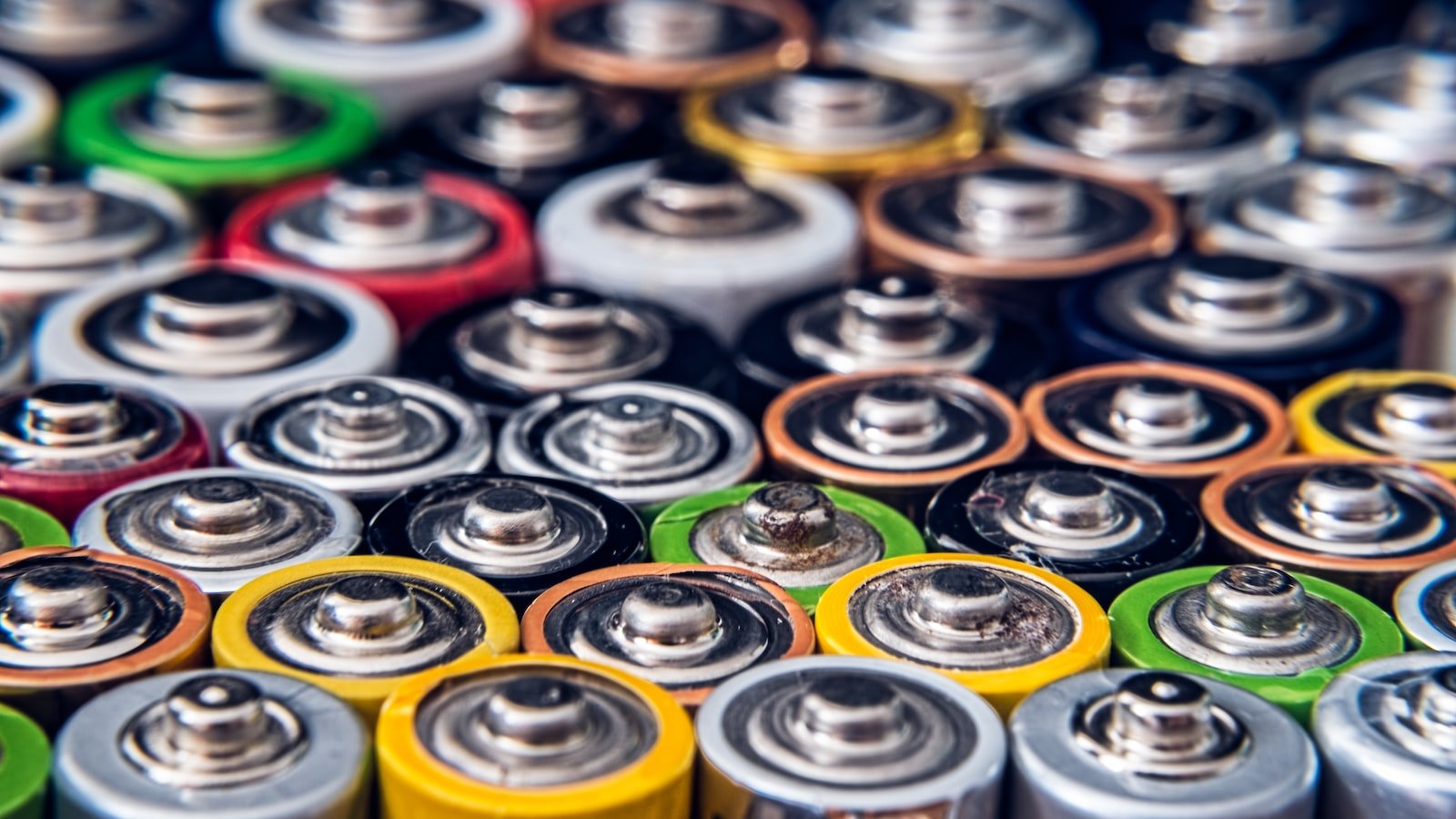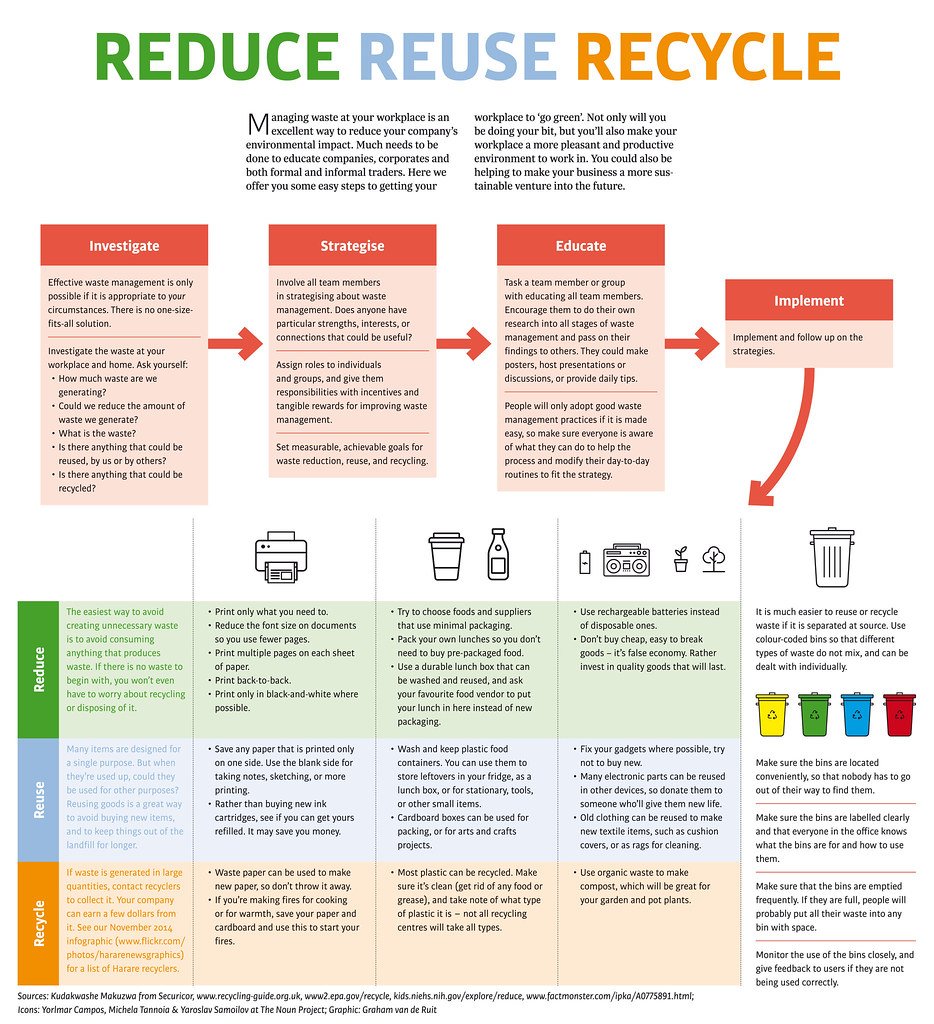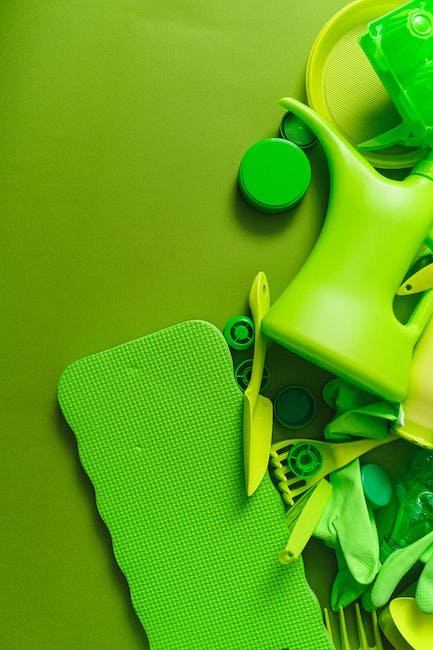As the world continues to grapple with mounting environmental challenges, an often overlooked hero steps up to combat the crisis: recycling. While we might associate this noble act with sorting plastic bottles or separating paper from the rest of the trash, recycling is a multifaceted endeavor that can have far-reaching impacts on our planet’s health. For mothers, in particular, understanding the significance of recycling is not only essential for creating a sustainable future but also for instilling lifelong values of environmental responsibility in our children. This mom’s guide aims to illuminate the importance of recycling, unveiling its hidden wonders while equipping mothers with the tools they need to become champions of this vital cause. So, strap on your eco-warrior cape, grab your little ones by the hand, and let’s embark on a recycling journey like no other!
Table of Contents
- The Impact of Recycling on Our Planet’s Future
- Discovering Simple and Effective Recycling Strategies for Families
- Promoting Environmental Consciousness Through Recycled Crafts and Activities
- Reducing Waste: Practical Tips for Implementing a Household Recycling System
- The Role of Recycling in Teaching Kids about Sustainable Living and Responsibility
- Q&A
- Key Takeaways

The Impact of Recycling on Our Planet’s Future
Recycling plays a vital role in shaping the future of our planet. By participating in the recycling process, we can significantly minimize our negative impact on the environment and contribute towards a more sustainable future.
One of the key benefits of recycling is the conservation of natural resources. Through recycling, we can reduce the need for extracting, refining, and processing raw materials, such as minerals, oil, and timber. By doing so, we can preserve natural habitats, protect biodiversity, and limit the destruction caused by resource extraction.
Recycling not only conserves resources but also helps in reducing greenhouse gas emissions. When we recycle materials like paper, plastic, and glass, we prevent the release of harmful gases during the manufacturing process. These gases, including carbon dioxide and methane, contribute to global warming and climate change. By recycling, we can minimize the carbon footprint and mitigate the effects of climate change.
- Recycling reduces landfill waste: By diverting waste from landfills, we can reduce the production of harmful pollutants, leachate, and greenhouse gases.
- Recycling saves energy: Manufacturing products from raw materials requires a significant amount of energy. By recycling, we reduce energy consumption and help conserve electricity, oil, and gas.
- Recycling protects wildlife: Improper waste disposal harms wildlife through pollution and habitat destruction. Recycling can help mitigate these impacts and create a safer environment for plants and animals.
Overall, is immense. It offers us an opportunity to make a positive change, reduce waste, conserve resources, and protect the environment for generations to come.

Discovering Simple and Effective Recycling Strategies for Families
Are you looking for simple and effective recycling strategies that your whole family can implement? Look no further! We have compiled a list of innovative ideas and practical tips to help reduce waste and make recycling a breeze for everyone in your household.
1. Embrace the Three Rs:
- Reduce: Encourage your family members to minimize waste by purchasing only what is necessary. Teach them to select products with minimal packaging or buy in bulk to reduce the overall amount of waste generated.
- Reuse: Give items a second life by encouraging the reuse of materials. For example, repurpose glass jars as storage containers or donate unwanted items to local charities or thrift stores.
- Recycle: Ensure that your family understands the importance of recycling and make it a regular part of their routine. Place recycling bins in easily accessible areas throughout your home to make it convenient for everyone to sort and dispose of recyclable materials properly.
2. Composting:
Composting is not only great for the environment but also a wonderful way to involve the entire family in a sustainable practice. Teach your kids about the benefits of composting and how it can help reduce food waste. Create a designated composting area in your backyard or consider using indoor composting bins for those with limited outdoor space.
3. Eco-Friendly Crafts:
Turn recycling into a fun and creative activity by organizing craft sessions using recycled materials. Get your family members involved in creating unique crafts from items that would otherwise end up in the trash. From cardboard sculptures to bottle cap magnets, the possibilities are endless!
By implementing these simple recycling strategies, you can not only reduce your household’s environmental footprint but also create a more sustainable and conscientious lifestyle for your entire family.

Promoting Environmental Consciousness Through Recycled Crafts and Activities
Join us on a journey towards a greener and more sustainable future as we explore the wonders of . Through the power of creativity and innovation, we can transform everyday waste materials into beautiful pieces of art while sending a powerful message about the importance of recycling and reducing waste.
- Recycled Crafts: Let your imagination run wild as you discover the endless possibilities of repurposing materials that would otherwise end up in landfills. From plastic bottles transformed into stunning flower vases to old magazines transformed into unique papier-mâché sculptures, recycled crafts allow us to give these items a second life while minimizing our impact on the environment.
- DIY Projects: Dive into a world of DIY projects that not only save us money but also enable us to make more sustainable choices. From upcycling old furniture to creating homemade cleaning products, these activities not only reduce waste but also encourage us to rethink our consumption patterns. Get ready to roll up your sleeves and embark on a fun and fulfilling DIY journey!
- Outdoor Adventures: Promoting environmental consciousness doesn’t always have to take place indoors. Take a breath of fresh air and engage in outdoor activities that celebrate nature while raising awareness about environmental issues. From nature walks and beach cleanups to community gardening projects, these adventures will connect us with the environment and inspire us to protect it.
So, whether you’re a craft enthusiast, a DIY aficionado, or an outdoor enthusiast, this section will provide you with a treasure trove of ideas and inspiration to embrace environmental consciousness in your everyday life. Let’s come together and show the world that a small change in our actions today can create a huge impact on our planet’s future tomorrow!

Reducing Waste: Practical Tips for Implementing a Household Recycling System
Practical Tips for Implementing a Household Recycling System
Now that you’ve decided to make a positive impact on the environment by reducing waste, it’s time to implement a practical recycling system in your household. These tips will help you streamline the process and make recycling a breeze:
- Identify recyclable materials: The first step is to familiarize yourself with the types of materials that can be recycled. Common items include paper, cardboard, glass, plastic bottles, and aluminum cans. Check with your local recycling center for a comprehensive list.
- Designate recycling bins: Set up designated bins for each type of recyclable material in a convenient area of your home. Clearly label each bin with the specific material it is intended for. This will make it easier for family members to separate their waste correctly.
- Educate your family: Ensure that everyone in your household understands the importance of recycling and how to properly dispose of recyclable items. Encourage them to rinse out bottles or cans to minimize contamination.
- Create a recycling routine: Establish a weekly schedule for taking out the recycling, making it a regular part of your household routine. Choose a day that works best for you and your family to ensure consistency.
- Research local recycling programs: Look for recycling programs or initiatives in your community that may offer additional recycling options, such as electronic waste or hazardous materials. Take advantage of these services to further reduce waste in your home.
By implementing these practical tips, you’ll be well on your way to reducing waste and making a positive impact on the environment. Remember, every small action counts!
The Role of Recycling in Teaching Kids about Sustainable Living and Responsibility
Recycling plays a pivotal role in teaching children about sustainable living and responsibility. By engaging kids in recycling practices, we not only instill a sense of environmental awareness but also foster a deep understanding of their role in preserving the planet for future generations.
1. Encourages critical thinking: Recycling challenges children to think critically about the materials they use and their impact on the environment. They learn to differentiate between recyclable and non-recyclable items, understanding the importance of reducing waste and conserving resources.
2. Promotes teamwork and collaboration: Involving kids in recycling initiatives fosters teamwork and collaboration. They can participate in community clean-up drives, sorting recyclables, and creating eco-friendly crafts. Through these collaborative efforts, children learn the value of working together towards a common goal and the impact their actions can have.
3. Cultivates responsible habits: Recycling teaches children the importance of taking responsibility for their actions. They develop lifelong habits such as proper waste disposal, reducing single-use items, and repurposing materials creatively. By practicing responsible recycling, kids become eco-conscious individuals who actively contribute to a sustainable future.
Ultimately, incorporating recycling into a child’s education empowers them to make informed choices and be active participants in creating a greener, more sustainable world.
Q&A
Q: Why is recycling important?
A: Recycling helps conserve natural resources, reduces pollution, and minimizes the amount of waste that goes to landfills, thus protecting the environment for future generations.
Q: How can recycling benefit my family?
A: Recycling teaches valuable lessons to children about responsible consumption and caring for the planet. By recycling, you can also save money by reducing the amount of waste your family produces.
Q: What are some easy ways to incorporate recycling into our daily routine?
A: Start by setting up a designated recycling area at home, where you can sort and store recyclable materials. Educate your family about what can and cannot be recycled in your area and make it a habit to separate recyclables from regular trash.
Q: Can recycling really make a difference in the fight against climate change?
A: Absolutely! Recycling helps reduce greenhouse gas emissions by conserving energy and reducing the need for extracting and processing raw materials. Every small recycling effort counts in the greater battle against climate change.
Q: How can I encourage my kids to get involved in recycling?
A: Make recycling fun by turning it into a game or a challenge. Incentivize your kids with rewards for their efforts, and involve them in outings to recycling centers or clean-up events to help them understand the impact of their actions.
Q: Are there any common misconceptions about recycling?
A: One common misconception is that all items with a recycling symbol can be recycled. However, the symbol simply indicates the type of plastic and doesn’t guarantee recyclability. It’s important to check local recycling guidelines for specific instructions.
Q: Are there any alternative recycling methods for hard-to-recycle items?
A: Yes, several organizations and programs specialize in recycling items like electronics, batteries, or certain plastics that may not be accepted in curbside recycling programs. Research local recycling centers or specialized collection events in your area.
Q: Can recycling help create jobs within the community?
A: Yes, recycling industries provide employment opportunities by creating jobs in recycling centers, hauling, sorting, and processing recyclable materials. Supporting recycling not only benefits the environment but also contributes to local economic growth.
Q: What are some sustainable practices that go hand-in-hand with recycling?
A: Alongside recycling, reducing waste generation and reusing items are key sustainable practices. By choosing reusable products, composting organic matter, and advocating for eco-friendly packaging, we can further minimize our impact on the environment.
Key Takeaways
As we wrap up this journey through “The Importance of Recycling: A Mom’s Guide,” it is evident that our collective efforts towards sustainability hold tremendous power. By instilling recycling habits in our children, we are building a foundation for a greener tomorrow. Today’s young minds will inherit a planet shaped by our actions, and it is our responsibility to lead by example.
Let us embark on this momentous task together, armed with knowledge and determination, as we inspire our little eco-warriors to embrace recycling as a way of life. From reducing waste to reimagining the possibilities of discarded items, our women-power knows no bounds.
Remember, dear mothers, your role resonates beyond your household. Engage in conversations within your community, inspire others through your actions, and advocate for environmentally conscious choices. Together, let us bring about a wave of change, unraveling the vast potential of recycling.
As we bid adieu, may this guide serve as a timeless reminder that every small step counts. Embrace the beauty of recycling, relish the joy of a cleaner planet, and revel in the smiles of your children, who hold the key to a sustainable future.
Thank you for joining us on this remarkable journey. Your commitment and dedication to the cause kindle hope in even the darkest corners. May we forever remain steadfast in our efforts, weaving a story of unity, love, and a shared passion for preserving our magnificent home, Earth.
As an affiliate, my content may feature links to products I personally use and recommend. By taking action, like subscribing or making a purchase, you’ll be supporting my work and fueling my taco cravings at the same time. Win-win, right?
Want to read more? Check out our Affiliate Disclosure page.